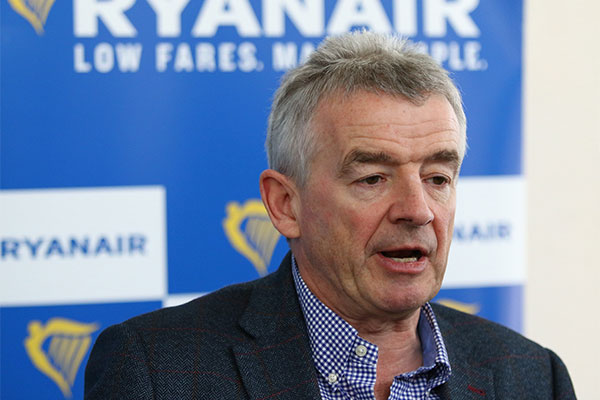Budget airline Ryanair has announced a reduction in its annual profit expectations following significant changes in its sales channels. The removal of flight listings by major OTAs has necessitated fare adjustments.
This recalibration comes as the airline navigates through higher operational costs, despite an increase in passenger traffic. Such strategic shifts underscore Ryanair’s ongoing efforts to optimise market presence and sustain competitive advantage.
Ryanair Profit Forecast Adjustment
Ryanair has revised its yearly profit forecast downward following the removal of its flights by major Online Travel Agencies (OTAs). This strategic move occurs amid higher operational costs, leading to decreased profits despite a notable rise in the airline’s passenger numbers this year. The airline’s profit for the third quarter significantly dropped compared to the same period last year.
Challenges in Passenger Load and Fare Pricing
The airline experienced softer than expected passenger loads and yields during the peak Christmas and New Year periods. This scenario compelled Ryanair to reduce its fares post the sudden removal of flights from some OTA platforms in December. As a result, although there was a 13% increase in average fares, close-in passenger loads were less robust than initially projected.
Ryanair’s CEO, Michael O’Leary, highlighted the unusual removal of flight listings as a major factor affecting demand. The adjustments in fare pricing were made in anticipation of regaining control over flight sales and improving customer experience.
Operational Adjustments and Strategic Partnerships
Ryanair reveals that the timing of Easter, occurring at the end of March, is unlikely to recover the weaker load factors seen in the recent quarter.
Moreover, Ryanair has cemented agreements with OTAs Loveholidays and Kiwi for booking flights directly on their own website. This effort is aimed at avoiding inflated seat prices and enhancing service levels for OTA customers.
Additionally, Ryanair’s integration with SAP Concur offers corporate clients significant efficiencies like automated expense management, enhancing its appeal to business travellers.
The Impact of Boeing Delivery Delays
Delays in Boeing’s aircraft deliveries have further compounded Ryanair’s challenges. The airline continues collaborating with Boeing to address these delays, striving for improved quality control.
Despite recent setbacks, including an incident involving an Alaska Airlines plane, Ryanair remains optimistic about future aircraft operations, especially the Boeing 737 Max models. Improved quality from Boeing in recent deliveries has been observed, though challenges in delivery schedules persist.
Ryanair’s interactions with Boeing’s high-ranking officials have underlined the need for heightened quality assessments at production locales in Seattle and Wichita.
European Airline Market Dynamics
Within the context of European airline market consolidation, Ryanair foresees further industry changes, including mergers such as ITA in Italy and Air Europa in Spain. Such activities highlight the evolving landscape in short-haul capacity across Europe.
According to Ryanair, ongoing constraints in short-haul flight capacity due to grounded fleets and delivery constraints will continue for several years.
Ryanair’s cost advantages, including low aircraft order prices and fuel efficiencies, are expected to sustain profitable growth, enabling a target of 300 million passengers by 2034.
Future Growth and Strategic Outlook
Despite the current hurdles, Ryanair plans to capitalise on its strategic positioning. The airline anticipates significant airline consolidation across Europe, considering it a favourable situation for its future operations.
This strategic landscape, combined with Ryanair’s robust financial position, is poised to drive long-term growth. Ryanair continues to project confidence in achieving its ambitious traffic targets in the coming decade.
O’Leary’s statements convey a strong commitment to overcoming present challenges and leveraging potential growth opportunities arising from market dynamics.
Customer Service Enhancements
Ryanair’s customer service is set to improve through partnerships with OTAs and enhanced corporate services. The focus remains on competitive pricing and efficient service delivery.
Corporate collaborations aim to streamline business traveller experiences, reinforcing Ryanair’s reputation in the sector.
In summary, Ryanair’s strategy amidst recent challenges reflects a careful balance of adjusting to market dynamics and leveraging operational efficiencies. While immediate profitability has been affected, the airline is positioned to harness growth opportunities, guided by its strategic adjustments and market positioning.
Ryanair’s commitment to maintaining competitive prices while enhancing customer experience is evident in its current operational and strategic initiatives. With the airline’s firm focus on future capacity and growth trends, Ryanair remains optimistic about long-term success.

